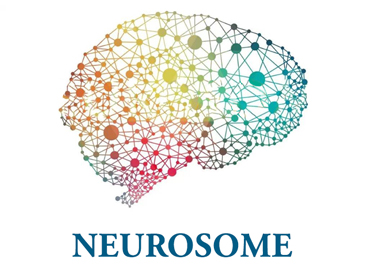COORDINATING ORGANISATION
Aristotle University of Thessaloniki on behalf of the NEUROSOME consortium
RESEARCH FIELDS
Computational biology, Genetic epidemiology, Bioinformatics, Systems biology, Metabolomics, Human biomonitoring, Behavioural toxicology, in vitro/in vivo testing, health impact assessment, environmental, exposure, GWAS, EWAS, personal sensors.
RESEARCHER PROFILE
Early Stage Researcher (ESR)
APPLICATION DEADLINE
16/03/2020 13:00 – CET (Europe/Brussels)
LOCATION
Thessaloniki
TYPE OF CONTRACT
Temporary
JOB STATUS
Full-time
INDICATIVE WORKING HOURS PER WEEK
40
OFFER STARTING DATE (INDICATIVE)
01/04/2020
EU RESEARCH FRAMEWORK PROGRAMME
H2020 / Marie Skłodowska-Curie Actions
MARIE CURIE GRANT AGREEMENT NUMBER
766251
The Marie Skłodowska-Curie Action “Exploring the Neurological Exposome (NEUROSOME) is an international research project, coordinated by Prof. Dimosthenis Sarigiannis from the Aristotle University of Thessaloniki (EL) and is financed under the funding line “excellent science” of the Horizon 2020 research and innovation programme of the European Commission.
NEUROSOME seeks to train the next generation of exposome scientists able to tackle the global challenges associated with the impact on human health due to environmental exposure. Great emphasis is placed on training ESRs through collaborative exchanges and practical courses. The ultimate goal is to produce a new generation of exposome researchers, trained in academia, applied research and industry, with transdisciplinary skills (environmental end exposure modelling, human biomonitoring, in vivo and in vitro testing, -omics technologies, high dimensional bioinformatics and environmental epidemiology,) and understanding of fundamental science and its direct application to environmental health challenges.
We welcome applications from early stage researchers from all over the world for the fourteen research projects until March 16, 2020 via our Application Form.
NEUROSOME focus is on the investigation of causal associations among genetic predisposition, cumulative exposure to multiple environmental chemicals of children and neurodevelopmental disorders. The project brings together beyond- the-state-of-the-art advances in human biomonitoring and systems biology, exposure monitoring and toxicological testing technologies and advanced tools for computational analyses of the exposure-to-health effect continuum according to the exposome paradigm. The NEUROSOME methodology will be applied in population studies across different exposure settings to neurotoxicants (metals and selected organic compounds) in Europe. This will help us understand how environmental stressors lead to or exacerbate neurodevelopmental disorders. New standards for human biomonitoring data interpretation in conjunction with environmental and exposure information will be developed for ready use in chemical mixture risk assessment.
NEUROSOME seeks to train the next generation of exposome scientists able to tackle the global challenges associated with the impact on human health due to environmental exposure. Great emphasis is placed on training ESRs through collaborative exchanges and practical courses. The ultimate goal is to produce a new generation of exposome researchers, trained in academia, applied research and industry, with transdisciplinary skills (environmental end exposure modelling, human biomonitoring, in vivo and in vitro testing, -omics technologies, high dimensional bioinformatics and environmental epidemiology,) and understanding of fundamental science and its direct application to environmental health challenges.
Members of this interdisciplinary and intersectoral scientific research network acting as ESR hosts are:
- Aristotle University of Thessaloniki (EL), Coordination
- Istituto Superiore di Sanità (IT)
- Spanish Council for Scientific Research (ES)
- Jožef Stefan Institute (SI)
- University of Paris Descartes (FR)
- Universitat Rovira I Virgili (ES)
- ToxPlus SA (EL)
- Institute for Advanced Study (IT)
- Istituto di ricovero e cura a carattere scientifico Burlo Garofolo (IT)
The following institutions take part in the network and will receive ESRs seconded from their host institution for limited periods of time:
- Johns Hopkins University School of Public Health, Department of Environmental Health Engineering, Baltimore, MD, USA
- Emory University Rolling School of Public Health, Atlanta, GA, USA
- United States Environmental Protection Agency, Office of Research and Development /Human Exposure Modeling Branch, Research Triangle Park, NC, USA
- Harvard University, Department of Biomedical Informatics, Boston, MA, USA
- UPCOM SA, Brussels, Belgium
Please find details about the application process and modalities at https://www.neurosome.eu
We are looking forward to your application.
Best regards
Prof. Dr. Dimosthenis Sarigiannis
Contact: Prof. Dr Dimosthenis Sarigiannis, Aristotle University of Thessaloniki
E-mail: sarigiannis@auth.gr Telephone: +30-2310 994562 / +30-2310 996225 / +30-2310 996227

